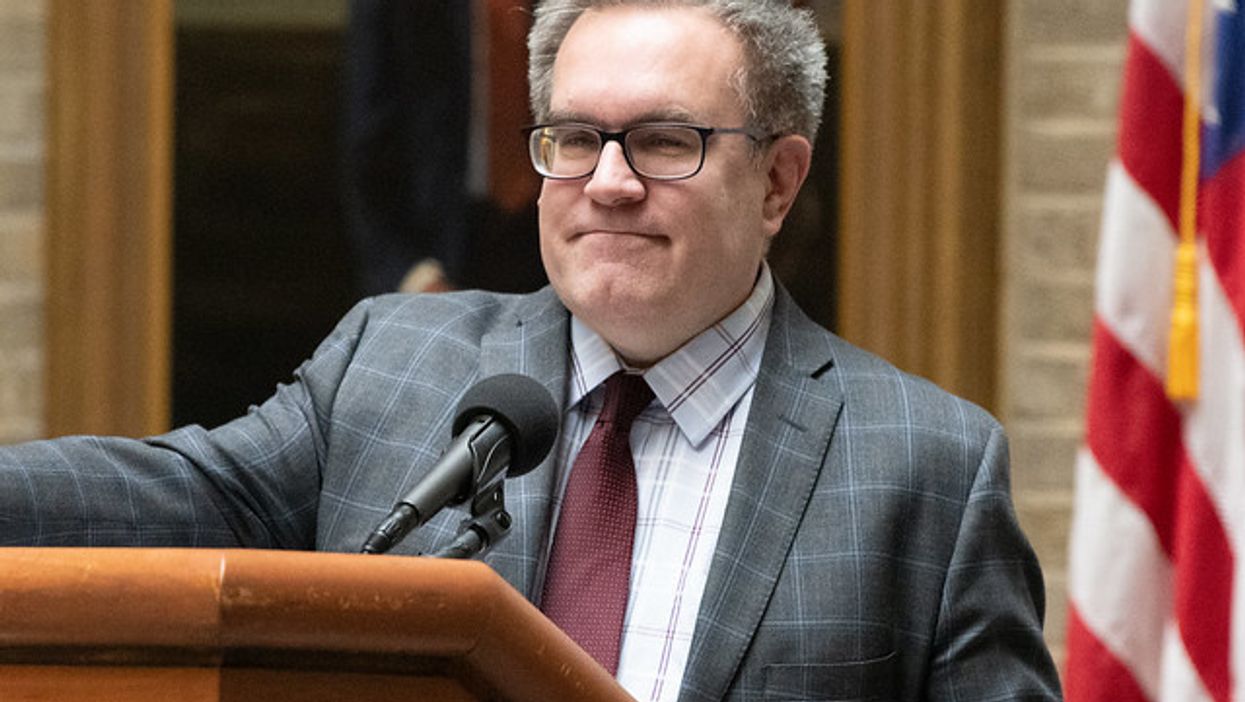Rebuking Wheeler, EPA Workforce Resists ‘Back To Office’ Order
Reprinted with permission from Alternet
Hundreds of telecommuting employees at the Environmental Protection Agency are in open revolt. Agency head Andrew R. Wheeler this week drew their ire for what they say is a deadly and racist order to return to federal buildings despite the COVID-19 pandemic.
They refused Monday to be bullied back into a much higher risk of contracting COVID-19 just to buttress the president's foolish behavior. And they noted that such dangerous directives appear aimed only at the EPA, an agency whose mission Trump loathes.
On Monday, as Trump made a dramatic show of returning to the White House and posing for propaganda films, the union representing many EPA employees declared its support for science and listening to doctors.
We have a president who doesn't care if you live or die. Even our mid-level management is with us on this.
American Federation of Government Employees (AFGE) Council 238 held a no-confidence vote on EPA Administrator Wheeler, an action one step short of a strike, which federal law prohibits.
The Council 238 members voted 695 to 56 against Wheeler. That's an overwhelming 93 percent expressing no confidence.
Those voting included scientists, public health professionals and other people with enough education and sound judgment to recognize that Wheeler's order to work in an unsafe environment is worse than foolhardy, it's inhumane and potentially lethal.
Union leaders said that midlevel managers who by law cannot be in a union share their views that the Wheeler directive is not just unwise, it's likely to result in the deaths of some EPA employees or their loved ones.
Trump originally tapped Wheeler — a former coal industry lobbyist and climate change denier — for EPA leadership back in 2017, before ultimately succeeding in installing him as permanent administrator in February 2019.
During an online union hall meeting Monday night to announce the no-confidence vote resultsunion leaders reminded members of their lack of protections from deadly workplace conditions.
Loreen Targos of Local 704 noted that federal employees cannot legally strike, then added that federal employees "have a right to fight for our lives."
Union Says Don't Return
Gary Morton, president of AFGE Council 238, emphasized telecommuting's effectiveness against COVID-19's spread. He told the council's 9,000 members that they should not return to their EPA offices until a safe and effective vaccine against the virus is developed, they get it and it is widely available.
The unionists have been working remotely since March 15 without issue, the union says.
But forcing them back into office spaces where mask-wearing would not be enforced and measures to ensure social distancing in hallways and elevators have not been taken is a threat to workers' lives.
Just one infected worker who models Trump's mask-less behavior could make a whole building sick. COVID-19 is expected to cause lifelong health problems in some of those affected. Infected workers can spread the disease to their family members, some of whom may be vulnerable due to age, pre-existing conditions and other factors not yet fully understood
Joyce Howell, a Local 3631 leader who has negotiated with management, called hypocrisy on the Trump administration.
"They [administrators] always say your health and safety is our priority — [but] if you spend 15 minutes at the bargaining table, you know that that's not true," Howell said. "I have no confidence employee health and safety are being considered during the reopening."
Wheeler's drive to pack bodies into traditional, and confined, office spaces where tiny droplets of moisture laced with the virus can spread disease is especially suspect to other union leaders. No other federal agency is being subjected to similar "phase three" return to federal buildings, they said.
"Seems like they are lining us up to push us over the cliff into phase three," President Bethany Dreyfus of Local 1236 said. "This whole time they were using us to make a political point."
AFGE Local 704's Felicia Chase further insists that Wheeler's plan to force employees back into traditional office spaces fails to consider COVID-19's disproportionate impact on black and brown people. Chase called Wheeler's directive "straight-up racist."
'Compliance' Next Week
The requirement for workers to return to their offices could come as early as Thursday evening with compliance expected Tuesday, Oct. 13, according to AFGE Council 238 members.
Eddie Guster, the council's sergeant-at-arms, said Trump's continuing dismissal of the deadly effects of COVID-19 and his returning to the White House while infectious is both "infuriating" and reckless.
Because of the disease, "some of my friends lost parents," Guster said. "We have a president who doesn't care if you live or die. Even our mid-level management is with us on this."
Targos remains defiant while reminding rank and file EPA employees that solidarity has enabled them to confound Wheeler and Trump for this long.
"They have no idea what we're capable of," in resisting the dangerous order Targos said. "They haven't seen nothing, so far."




